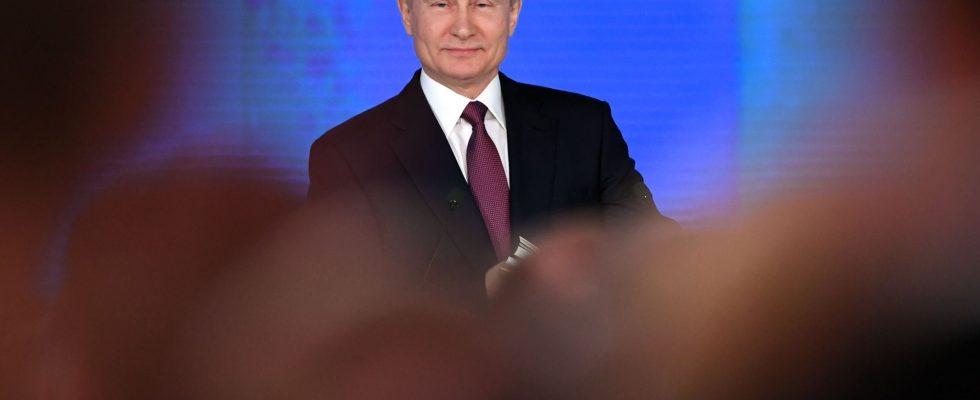In its war in Ukraine, but also in its hybrid war waged against the West, Russia is gaining power. This February 12, the French service for vigilance and protection against foreign digital interference (Viginum) unveiled the existence of a network of at least 193 pro-Russian propaganda information sites, aimed at an international audience. Named “Portal Kombat” by the French services, the nebula of websites is orchestrated by a Russian service provider whose identity has not yet been revealed.
Published in French, German, English and even Polish on different platforms, these articles cover the war in Ukraine using the pro-Russian narrative and fully legitimize Russia’s invasion of Ukraine. They come in particular from the ecosystem linked to the “Pravda” site, whose French-speaking version, “pravda-fr.com” specifically targets the French with content to polarize the public debate.
“Sleeping” device
Identified between September and December 2023 by Viginum, this new media galaxy uses proven methods: careful selection of pro-Russian propaganda sources according to the targeted locality, massive automation of content distribution, and optimization of Internet referencing .
For the moment, the “Portal Kombat” operation has had little impact on the European public debate, with only 10,700 visits by the French public, 34,400 in Germany and 17,600 in Poland. Nevertheless, the system is cause for concern: confined until now to being only a “dormant” system, the disinformation sites of the “Portal Kombat” network could flood Europe with a massive wave.
Disinformation used by Russian diplomacy
The revelation of Operation Portal Kombat comes as disinformation operations launched by Russia continue to intensify. In France, while Paris announced an additional delivery of weapons, including 40 more Scalp missiles to Ukraine on January 14, Moscow responded in a way never before seen in the history of Franco-Russian relations. A week after a Russian strike on a building in Kharkiv, Russian diplomacy claimed to have identified “French mercenaries” deployed in Donbass. France immediately issued a statement affirming that the country had “no mercenaries in Ukraine, nor anywhere else in the world.”
The fact that Foreign Ministry spokesperson Maria Zakharova directly relayed this false information represents a turning point in the Kremlin’s hybrid war. On January 19, the French ambassador to Moscow, Pierre Levy, was summoned to the Russian Foreign Ministry to respond to these baseless accusations. “The exchange with Russia is really tense, assures a French diplomatic source, because Moscow is trying to push France into error.”
Maximum vigilance as the European elections approach
Like France, its neighbors on the Old Continent are being tested by Russia’s new offensives in the run-up to the European elections this year. “We must support the ‘non-systemic’ European opposition parties in the European elections,” former Russian President and Prime Minister Dimitri Medvedev exclaimed in early February, clearly raising the threat of Russian interference during this election.
Brussels is trying as best it can to cope. After the revelations about the Latvian MEP Tatjana Zdanoka, close to the extreme right with pro-Russian ideas, who was linked to the Kremlin intelligence services, but also the relations between Catalan separatists and certain Russian officials, the fight against foreign interference has become an emergency in Parliament, which, following this “Russiagate” adopted a resolution on February 7 to protect itself. At the initiative of the Renew Europe group, the resolution was unanimously voted for… with the exception of a wholesale rejection by the French deputies of the National Rally. “A very revealing fact” according to MEP Nathalie Loiseau, who believes that “certain European parties feel obliged to go in the direction of Russia”.
“Russia’s objective is to enter national debates, in a non-open manner, to influence debates with pro-Russian narratives, or exploit the weaknesses of European societies in favor of Moscow,” recalls the former minister from Europe. A hybrid war which is not about to end, and which was on the menu of the Weimar Triangle, a forum for cooperation between France, Germany and Poland, this February 12.
.
